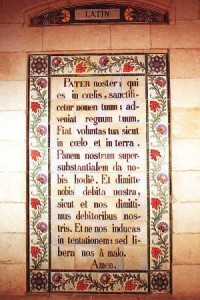
Courtesy of http://www.uic.edu
Some foreign language programs have no need to justify their existence. Certainly few would advocate removing programs like Spanish or French from high schools, given how many people worldwide (and, especially with Spanish, in the United States) speak them. Nor do languages like Arabic and Mandarin lack their defenders, given their importance to current American diplomacy. Even the rarer foreign language offerings — say, German or Russian — attract little trouble, as long as the resources and personnel remain available to offer them.
The two exceptions to this rule are programs in Ancient Greek and Latin, despite their pivotal role in human history. The foundations of Western civilization, from philosophy to science to literature, can be traced back through these two languages to Homer’s “Iliad” and the “Odyssey,” the earliest works of classical literature. The rise of the Greek civilization made their language the premier diplomatic and literary tongue of the Mediterranean, culminating in Alexander the Great’s conquests and the resulting Hellenistic age. From there, the Roman Republic (and then Empire) expanded the reach of the Greek language as well as its own Latin tongue.
Beyond philosophers like Seneca, poets like Catullus and playwrights like Terence, it goes without saying that the New Testament, one of the chief works of all Western literature was written in Roman times, in Koine — that is, “common” — Greek.
Nor did the division of the Roman Empire end the central role the classical languages played in civilization. Greek remained the working language of the Eastern Roman Empire, and Islamic scholars translated Greek philosophical, scientific and literary works into Arabic, thus preserving them for their later return to the Western world during the Renaissance.
Meanwhile, aided by the rise of the Roman Catholic Church, Latin became the chief working language (one might even call it the lingua franca) of Western Europe, extending across geographic, ethnic and political borders. Monks and scholiasts — from a Greek word meaning “leisure” — annotated Latin manuscripts, likewise allowing them to survive into the early modern era.
Essentially, regardless of the subject matter, innumerable key works of Western thought have been written in Latin and Greek. The Founding Fathers of the United States, as well as their philosophical predecessors and successors, were thoroughly schooled in the works of the Greeks and Romans in the original language. Their conception of a modern republic was partly drawn from classical theories on the role of the state and the citizen, filtered through centuries of classically-influenced thinkers who wrote in these two languages.
Similarly, modern science owes much to the common language of Galileo, Copernicus, Brahe, Kepler and Newton — to name only the proto-physicists whose works, also written in Latin, ended the reign of the geocentric model and ushered in the beginnings of the scientific method.
Yet, despite this rich literary and scientific tradition, Latin and Greek have been dismissed in the last few decades as irrelevant languages, incapable of contributions to a modern population. These two languages, once among the most important matters to which educated people could turn their attention, have since become the exclusive province of private schools and the occasional charter or alternative school that can afford to provide their teaching.
One can’t help but feel that something slips away with their loss as well. Certainly the world is no longer the same as Horace’s, but his ideas have filtered down through millennia to end up among the verses of Robert Frost. Similarly, William Tyndale’s New Testament — the one used in the King James Version of the Bible, possibly the most influential single work in the English language — was praised for its ability to maintain the sense of the original Greek.
They may not be spoken commonly anymore, but the languages of classical antiquity still have much to offer students today. Their omission from today’s curricula, while understandable under the circumstances, is nonetheless a loss for the modern era.





